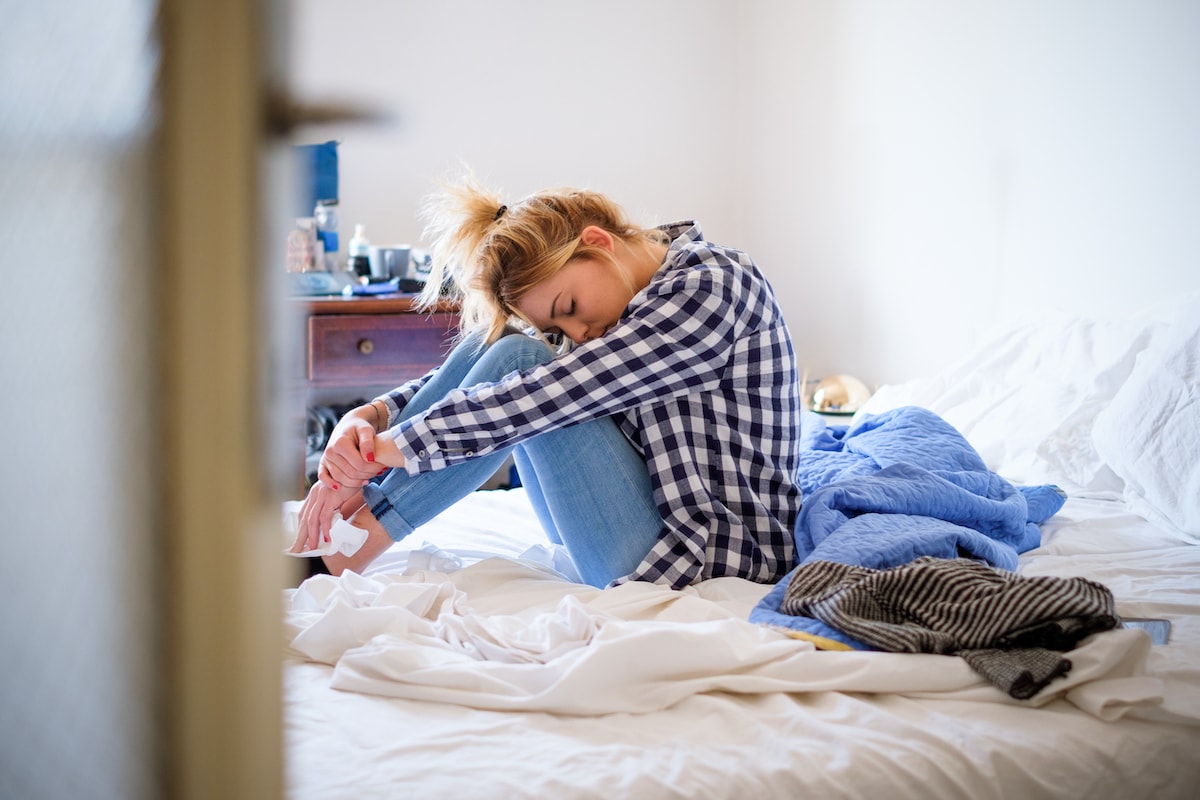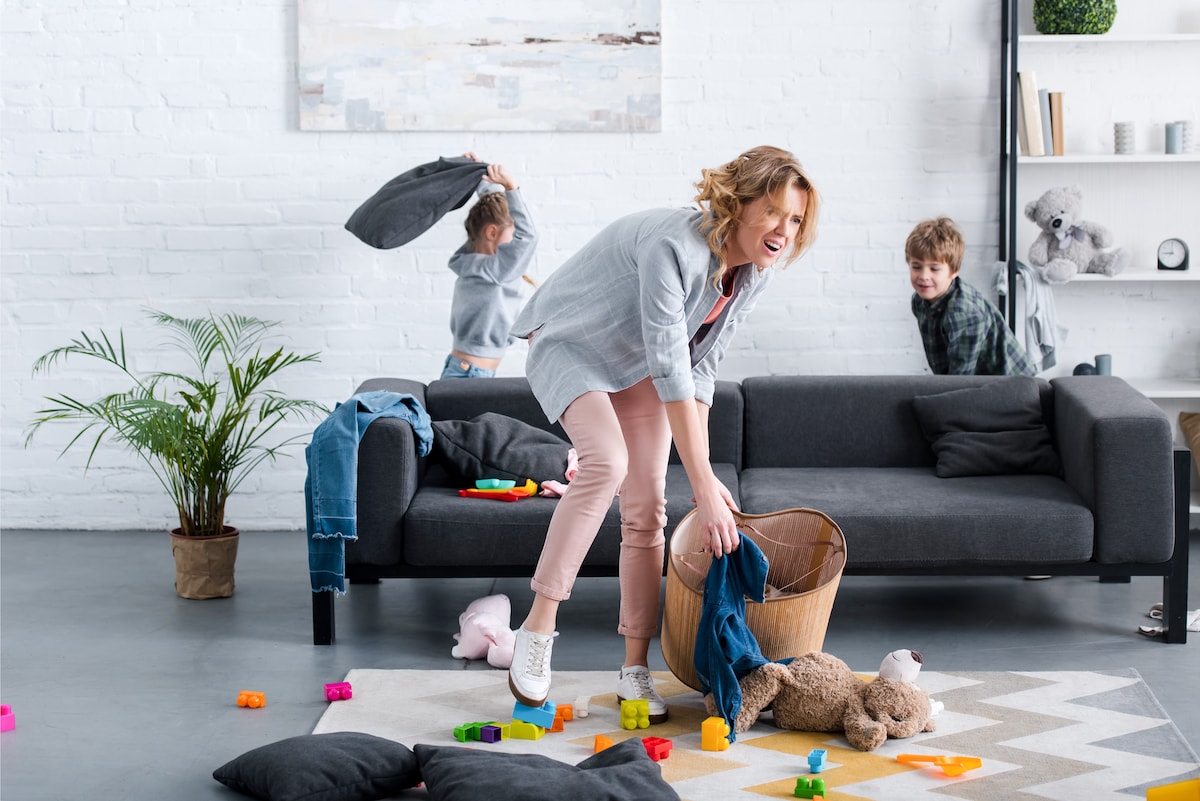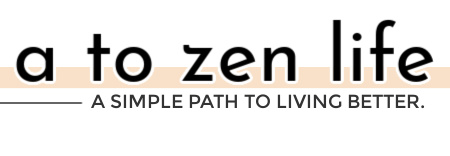20 Reasons Decluttering is Hard – and What to Do About It!
This post may contain affiliate links for your convenience. That means that if you make a purchase, I will receive a small commission at no extra cost to you. Read more here.
Decluttering is hard. There are plenty of reasons why it can be tough to let go of our stuff, but the benefits of decluttering are worth it!
Here are the most common reasons why decluttering is so hard and what you can do to make it a little bit easier. Let’s dive in!

Why is decluttering so hard?
Decluttering requires changing your behaviors, habits, and environment. Even simple changes are rarely easy for most people to make – I struggle to simply drink more water, for example – so when you consider three big changes like this…it’s quite a lot, isn’t it?
That’s even more true when the change involves a “loss” of some kind.
Even if you believe decluttering your home might help you, you still have to fight against basic human psychology and behaviors you’ve probably been taught by society since childhood.
If you struggle with decluttering, you are not alone. There’s even a term called decluttering paralysis that describes the state of mind where you genuinely want to declutter, but everything seems to be stopping you.
Fortunately, you can overcome even the most severe decluttering blocks – by getting to the root of the problem.
20 Reasons you struggle to declutter – and what to do!
Here are some common reasons people find it hard to declutter and some clever solutions to help you break free from the chains of decluttering paralysis!
1. There’s too much clutter
If you have ever caught yourself thinking or saying, “My house is too messy to clean,” you know the feeling.
Seeing all that stuff piling up can make you doubt your ability to get through it all and make you feel discouraged.
Don’t let these emotions win! Counter them by consciously choosing to believe in yourself and your decluttering abilities. Know that you have what it takes to change your surroundings.
If people out there can conquer Mount Everest, you can conquer the mountains of clutter!
What you are not changing, you are choosing.”
READ MORE: 70+ Decluttering Quotes to Inspire and Motivate You
2. It’s too overwhelming
Dealing with unwanted stuff can unleash several negative feelings, such as anxiety or depression. If you feel frustrated, angry, or overwhelmed when trying to declutter, know that you are not alone and give yourself grace.
Don’t try extreme decluttering – take it slowly.
Break your decluttering into small, achievable steps, and celebrate your victories. You can still move forward without getting overpowered by negative emotions by doing a little bit at a time.
If you want to know more about achieving this outcome, check out this 5-step guide on how to declutter your entire home, where to start, and tips to make it as easy as possible.
3. You don’t have enough time to declutter
When you’re busy and life is already overwhelming, it may be tempting to postpone decluttering for later because you feel there isn’t enough time to clean or declutter your home.
But don’t do it!
If you keep waiting for the “right time” to declutter, you’ll just be waiting forever. Go for progress over perfection and find ways to fit it in, even in small chunks. Even a few minutes a day is enough to make a difference in your house gradually.
You can:
- wake up 15 minutes earlier in the morning
- go to bed 15 minutes later in the evening
- set a timer and do as much as you can in 15 minutes
- turn on your favorite podcast or music while you declutter
- ask a partner, friend, or family member for help
- declutter during your kid’s naptime
- have your kids help you with decluttering (it teaches them essential life skills, too)
“Be not afraid of growing slowly, be afraid only of standing still.”
– Chinese Proverb
4. You’re keeping too many things “just in case”
The key to parting with unwanted items that you tend to hoard just in case you need them someday is to understand that in most instances, “someday” may as well mean “never.”
Be very honest with yourself: how likely are you to use your old broken laptop someday?
Let me guess: not very likely. Your moment of power is now; make the hard decision to let go of things, and declutter!
5. You have a scarcity mindset
If you have experienced being poor, broke, or in debt for any amount of time, decluttering can be especially challenging. Financial insecurity and poverty often cause a scarcity mindset that can create various levels of hoarding behaviors.
If you feel compelled to accumulate more and hoard items to feel secure, you probably know that buying and owning give very elusive, temporary security.
Strive to overcome your fears and consciously cultivate an abundance mindset. Once you realize that there is enough to meet your needs, your financial worries will subside, and you will naturally stop clinging to clutter.
To truly get over the scarcity mindset and stop collecting clutter, you may need professional help or at least some self-help books – my husband and I have struggled with poverty and hoarding, respectively, so we know how hard it can be!
6. You struggle with feelings of financial guilt
Are you familiar with the term buyer’s regret (or buyer’s remorse)? The two are used interchangeably to describe guilt or regret following an unnecessary and sudden purchase.
The most insidious thing about buyer’s remorse is that it doesn’t always strike right away. It can happen over time, as well. When you buy something that you like a lot, you may feel satisfied with it, but as months pass and the item gets dusty on the shelf, it suddenly becomes obvious you wasted money on it.
To avoid it, you put it into your house’s storage room to “deal with it later,” but as you bump into it during cleaning, you are reminded of your poor shopping decisions, and financial guilt kicks in.
This can create difficulty throwing things away; you don’t want to feel like you wasted money!
Begin by giving yourself some grace over the past. It’s okay to let go of something you no longer enjoy as much or find value in. You are moving towards being more thoughtful and more mindful with your purchases.
Decluttering gives you a fresh start, one you need and deserve!
READ MORE: This “One-In-One-Out Rule” is the Secret to a Clutter-Free Home!

7. You are worried about the environment
The benefits of minimalist living are nothing to sneeze at, but worries about the environmental impact of decluttering are real, too!
One of the best ways to offset environmental guilt related to decluttering is to find sustainable ways to get rid of your clutter.
Yes – eco-friendly decluttering is a thing, and some of the most popular options include:
- yard and garage sales
- reselling clutter online
- donating to charities or thrift stores
- giving away in Buy Nothing groups
- and more…
READ MORE: 50+ Mindful Ways to Get Rid of Stuff After Decluttering
8. You loved this item in the past
Almost everyone feels attached to things that they loved in the past. However, holding on to too much stuff from the past can stop us from being fully present in the now!
The key is to realize that you won’t lose treasured memories by discarding things. There’s no chance you will forget how much you enjoyed skiing in the mountains even if you get rid of those skiis you haven’t touched in 20 years.
Even though we and our current belongings do, the past doesn’t change. Focusing on creating space for the things that matter to you you NOW!
READ MORE: How to Declutter Sentimental Items: 20 Tips to Make Letting Go EASIER!
9. You inherited this item from someone you loved
Getting rid of sentimental clutter that belonged to somebody important can be even more challenging than saying goodbye to favorite childhood mementos.
It’s tough to declutter when you’re stuck with your parents’ stuff and other family heirlooms – as a sentimental person, I know this so deeply it hurts! In fact, that’s the biggest reason why I became an emotional hoarder after the loss of my parents and my childhood home.
However, if you treat everything as special, then nothing is truly special!
Remember, your life is your own; you shouldn’t feel responsible for stuff your loved ones left behind unless you love or use it in your home.
If I could declutter 30 years of clutter down to eight suitcases and free myself, I believe you can too.
In the process of letting go you will lose many things from the past, but you will find yourself.
– Deepak Chopra
BE INSPIRED: 90 Letting Go Quotes for Moving On with Your Life
10. It reminds you of a special memory
As you can see from other examples mentioned earlier, clutter related to the past is one of the most challenging types to deal with. It creates problems even for experienced declutterers!
To discard or not discard? That is the question.
Again, my advice would be to keep the things you cherish most and let go of the rest with gratitude.
Give priority to items you use or love to display and keep the ultra-special and more personal memories in a special keepsake box.
READ MORE: 10 Memory Boxes That Are PERFECT to Store Your Keepsakes
11. You are comforted by buying and owning
Buying and owning often becomes a coping mechanism, and shopping addictions are more and more common in a society that encourages you always to want more.
Still, retail therapy isn’t a healthy habit.
Comfort buying can make you live from paycheck to paycheck and lead to credit card debt – not to mention all that clutter at home!
If this sounds like you, it’s time to break your bad shopping habits and find new and healthier ways to relieve stress and anxiety.
Here are a few ideas:
- track and budget your money
- follow top minimalist lifestyle bloggers and YouTubers
- declutter your toxic fantasy self-image
- complete a financial detox with a no-spend challenge
BE INSPIRED: Top 10 Minimalist Mom YouTubers to Follow Right Now
12. Your identity is tied to your possessions
Even though deep down we are all aware that we are not the stuff that we own, we may still use it to get a new identity or strengthen the one we have.
Possessions can either prevent an identity crisis or give us the feeling of a new start.
However, if you own too many, you risk being owned by them!
Find ways to disentangle your identity from physical belongings. Once you’ve got a strong sense of self, you will find decluttering much easier!
READ MORE: Top 20 Be Yourself Quotes to Embrace the Skin You’re In!
13. You haven’t set clear boundaries for your rooms
If you (or others with whom you live) don’t put things away after using them, you will soon find those very same things scattered around the house.
To prevent clutter from piling up, assign places for your “wandering items,” and don’t forget to set clear boundaries regarding rooms’ purposes.
If you decide to keep children’s toys in the playroom, make sure that they aren’t scattered in other rooms after the play. Or, if they do come out, teach your kids how to be responsible and clean up after themselves to relieve the burden on yourself.
Boundaries are essential in your decluttering efforts, as they help keep everything organized.
READ MORE: 20 Decluttering Rules the Experts Say Are “Life-Changing”

14. You are overburdened with clutter from other people
Fighting battles against other people’s clutter can significantly slow down your decluttering attempts. It’s not easy to keep your living space clutter-free when your loved one is a hoarder (or cluttered).
Remember that ultimately you can’t control other people’s actions.
You can’t force them to clean or declutter if they don’t want to. And nagging or throwing away other people’s stuff on their behalf can lead to resentment and undermine your relationships.
Opt to lead by showing a good example.
As they notice the positive effects of your efforts, it may motivate them to hop on board, too. It’s much easier to guide someone open to receiving help than try to change somebody that’s not ready for it.
Be patient and focus on your stuff in the meantime. You can still go a long way with your decluttering by doing so!
15. You worry about your home looking boring
Even if you strongly believe less is more, you may still harbor an unconscious dislike towards empty rooms. They may remind you of hospitals or offices and seem cold and uninviting.
Still, who said that your living room needs to be empty after decluttering?
It doesn’t.
You are always in control, and you get to choose what to discard and keep. Just because someone else is getting rid of their wall art doesn’t mean you should do it too!
Follow your inner guidance, and adapt your decluttering plan so that it fulfills your needs.
16. You are worried you might be judged by others
This is a tough one.
The fear of being judged by others is real and can lead to decluttering paralysis. If most of your family and friends live in big homes filled to the brim with stuff, you may be afraid to break the habit and declutter.
It can also be tough to encourage a more minimalist approach to gift giving around the holidays and birthdays, but it’s also a necessary conversation to have – honesty is the best policy!
The truth is, judgemental people are going to judge you no matter what. They will judge you if your home is messy, and they will judge you when your home is clean and tidy.
Their judgement is not your responsibility, nor should you care about it.
Let go of your fear about what others might think about you because, in the end, the only people that have a say in what your home looks like should be the people living in it!
17. You are afraid of making a mistake
Decluttering mistakes can happen, and anxiety about throwing things away can stem from them, too. Luckily, this scenario doesn’t happen too often.
More often than not, if you declutter, mindfully you’ll find the things you get rid of never even cross your mind again.
If you are very worried and on the fence about getting rid of something, you can always put it in a time-out box for 3-6 months before you make your decision. Just make sure you go back and ask yourself, “Am I ready to let this go?”
READ MORE: 15 Decluttering to Ask Yourself and Make Choices EASIER [PDF]
18. Physical or health barriers stop you from decluttering
If health issues or limited mobility impact your ability to declutter, give yourself grace. You might need to break decluttering sessions into smaller chunks of time or take frequent breaks.
Also, it doesn’t hurt to ask for support! Get help from friends and family or even local groups in your area.
You can hire help, as well! Don’t hesitate to reach out to professional declutterers or cleaners if you face challenges. Group efforts can create desired results much faster!
19. you hesitate to remove clutter after decluttering
Set yourself up for success by having the end in mind when you start. Know how you will get rid of stuff after decluttering it, so you choose once. While you are sorting, have boxes labeled:
- sell
- donate
- give away
- recycle
- trash
Put the items in the appropriate box and get rid of them as fast as possible after decluttering. The longer they sit in your home, garage, or car, the more tempting it will be to welcome them back into your home.
20. You don’t know where to start
Sometimes, there aren’t any significant barriers to decluttering, yet, you still can’t get started.
Let me help you with my free printable: a 10-page declutter checklist if that’s the case. Sign up using the form below, and you’ll get this fantastic declutter checklist straight to your mailbox! Or you can read more information about this declutter list here.
Final thoughts when you struggle to declutter
I hope you found this article about why decluttering is so hard helpful in some way and now feel ready and motivated to get started on your decluttering or minimalism journey!
Pin this post to help you when decluttering is hard!


